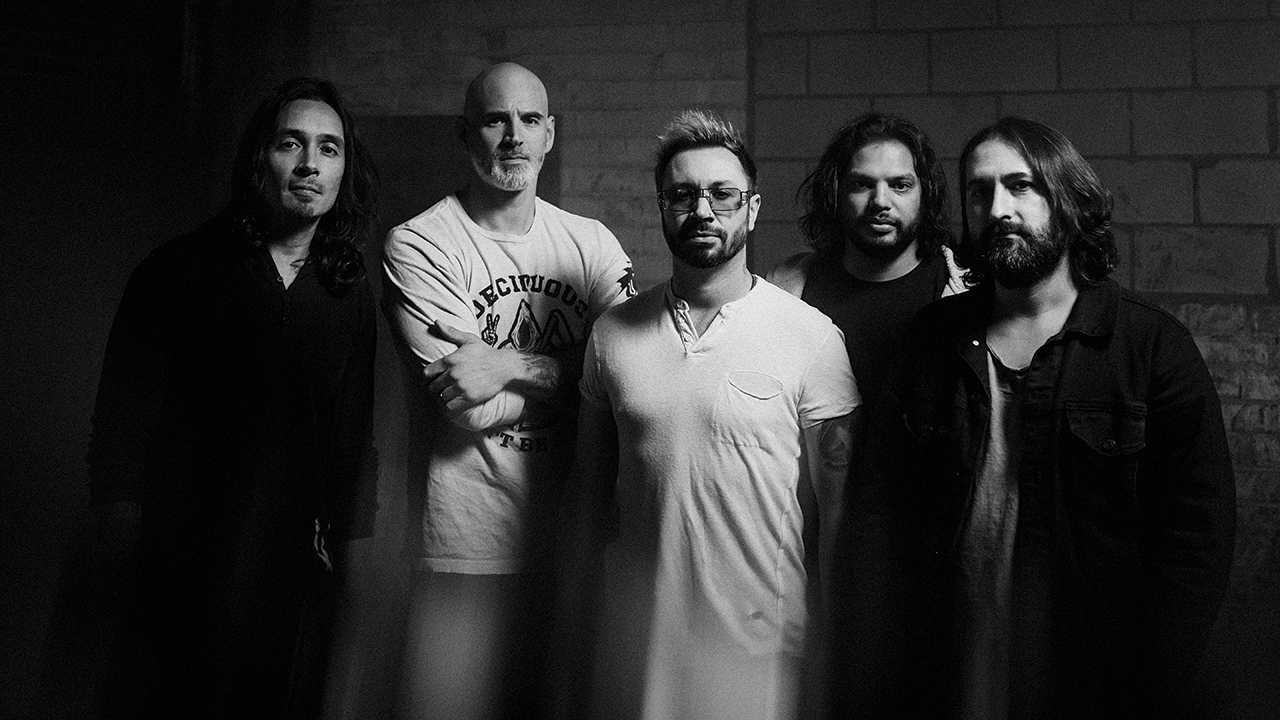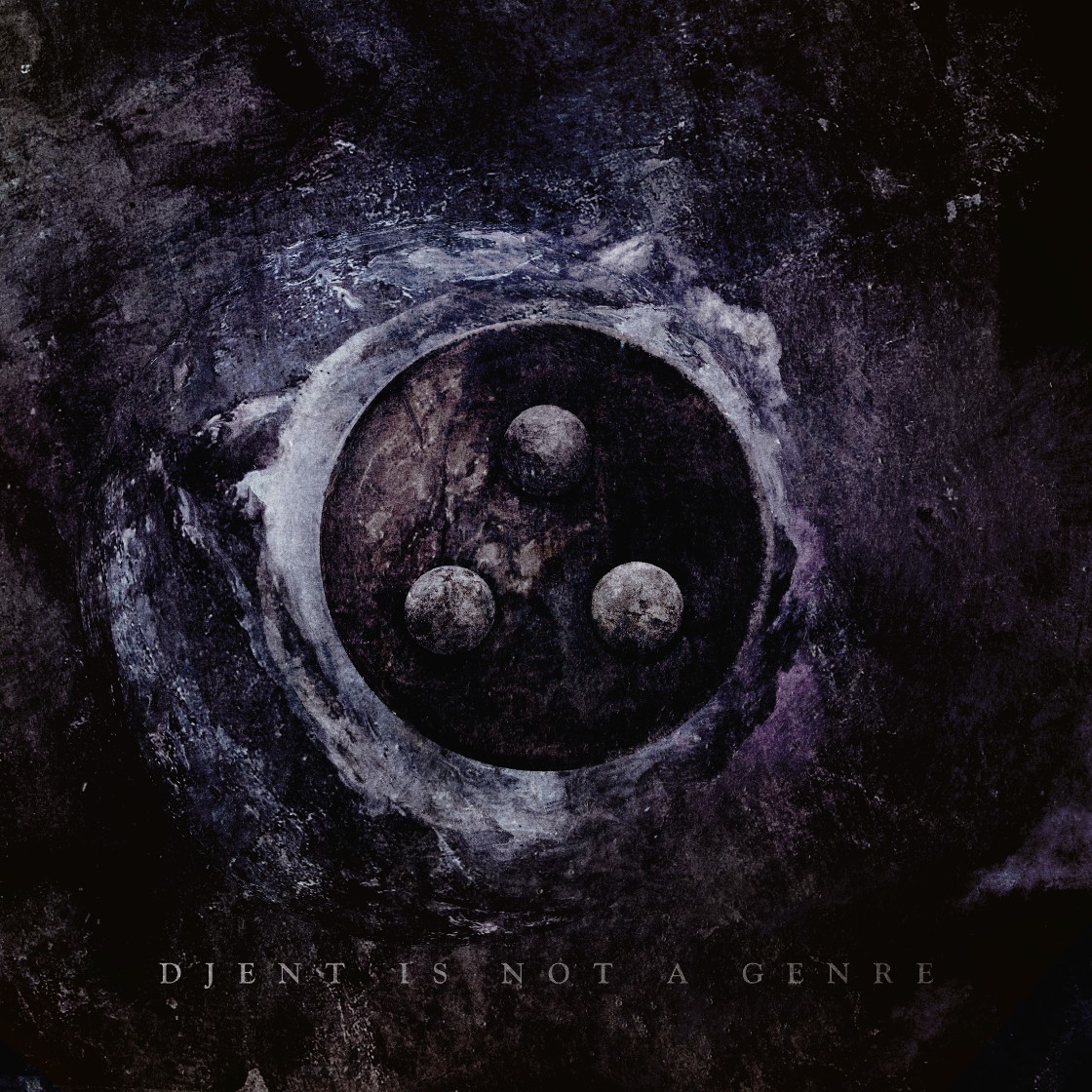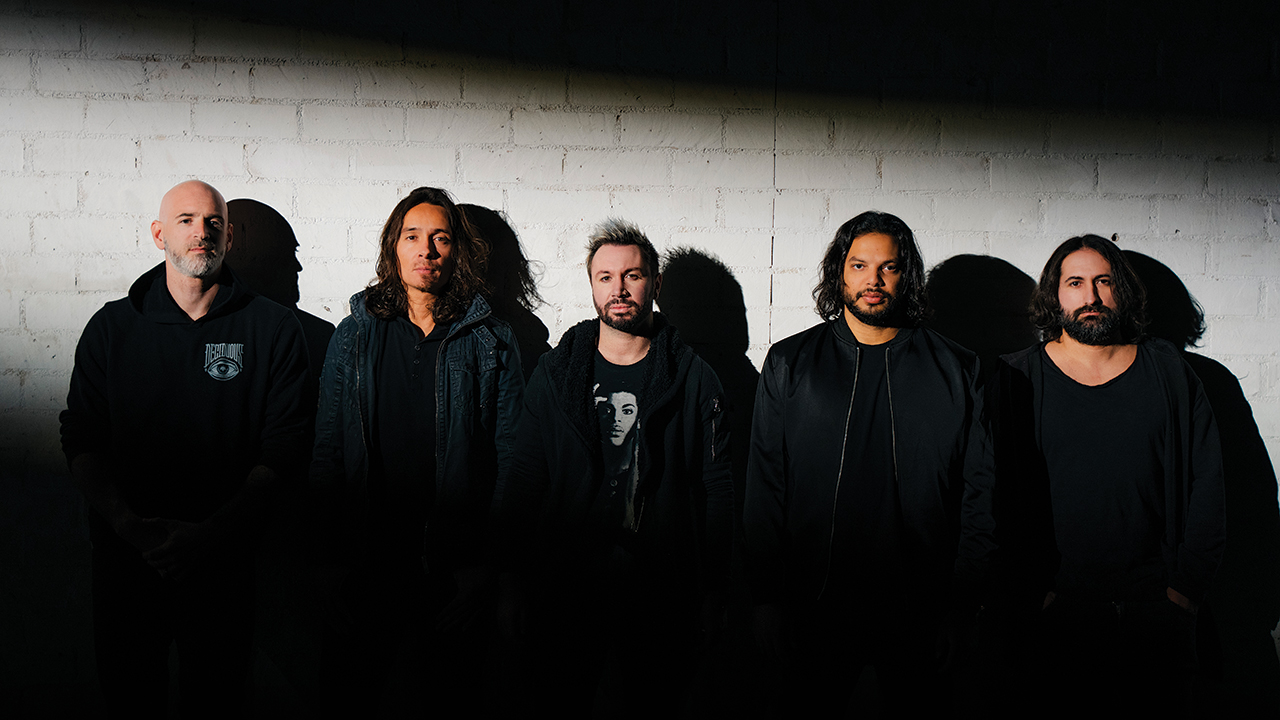"We chose to be a progressive metal band because it meant that we could do whatever we want." Periphery
The story of how Periphery V: Djent Is Not A Genre finds the US prog metallers at their defiant best.

Select the newsletters you’d like to receive. Then, add your email to sign up.
You are now subscribed
Your newsletter sign-up was successful
Want to add more newsletters?

Every Friday
Louder
Louder’s weekly newsletter is jam-packed with the team’s personal highlights from the last seven days, including features, breaking news, reviews and tons of juicy exclusives from the world of alternative music.

Every Friday
Classic Rock
The Classic Rock newsletter is an essential read for the discerning rock fan. Every week we bring you the news, reviews and the very best features and interviews from our extensive archive. Written by rock fans for rock fans.

Every Friday
Metal Hammer
For the last four decades Metal Hammer has been the world’s greatest metal magazine. Created by metalheads for metalheads, ‘Hammer takes you behind the scenes, closer to the action, and nearer to the bands that you love the most.

Every Friday
Prog
The Prog newsletter brings you the very best of Prog Magazine and our website, every Friday. We'll deliver you the very latest news from the Prog universe, informative features and archive material from Prog’s impressive vault.
In 2023, when the US prog metallers released Periphery V: Djent Is Not A Genre Prog spoke to guitarist Misha Mansoor about taking Periphery back to the band they always wanted it to be.
As another Periphery album makes its way into the world, the prog and metal communities find themselves polarised once more. This is a record defined by a heady mix of sparkling pop hooks, aggressive heavy metal mathematics and complex structures that unravel like a whodunnit. But, in what must feel like Groundhog Day for the Washington quintet, the internet is inconclusive about what to make of it.
“We chose to be a progressive metal band because it meant that we could do whatever we want,” says guitarist Misha Mansoor. “We love really heavy stuff. We also love really poppy stuff. It’s all kosher in this band. We have so many critics, but no one can agree on why they hate it.”
To some, when vocalist Spencer Sotelo sings, the band are ruined – they would rather the quintet were instrumental. For others, it’s only when he sings that Periphery’s modern, genre- fluid approach to making music is palatable. There are circles where their heaviness is considered reductive and guilty of tainting their genuinely beautiful turns. These are turns which, for another segment of the band’s dizzying Venn diagram of fans, unnecessarily sprinkle sugar onto what should be a staunchly savoury dish. Pleasing everyone is an impossible task.
“But that’s okay,” Mansoor returns. “I don’t think we’re the band that’s gonna convince anyone of anything. We’re not for everybody and we don’t want to be for everybody.”

For all their naysayers, the band’s penchant for crafting music that genuinely stands out – for better or for worse – has garnered a career that’s now seven albums deep. It’s earned them a Grammy nomination. The venues they play across the world have grown progressively bigger. Mansoor and his fellow guitarists, Mark Holcomb and Jake Bowen, have been on the cover of guitar magazines countless times, hailed, deservedly, as generational talents for their approach to modern guitar playing. They don’t restrict what is and isn’t welcome in the Periphery melting pot. Their love for music of all kinds bleeds into their writing, be it hellishly heavy, sickeningly sweet, or neckbreakingly left-field.
Says Mansoor, “Any diversity that you’re hearing is just because we like all these different styles. We like to just follow the song. When we start to write, we might have discussions about what we see an album being like, but the album we do write is never, ever what we expect it to be. We’ve learned that you can try and box a song into your arbitrary idea of what you thought it was gonna be, or you can just run with it and let the song take on a life of its own before your very eyes.”
Sign up below to get the latest from Prog, plus exclusive special offers, direct to your inbox!
While their current release, Periphery V: Djent Is Not A Genre, doesn’t stray too far from the musical mantra the band were founded on, their conviction at blending their widescreen imagination into cohesive songwriting is sharper than ever. Yet, having a pandemic-prolonged period to make this record nearly broke the band.
“When you work on something for so long, you can start to lose perspective. It’s hard to see the forest for the trees and take a holistic view of it because you’re just so entrenched in the details,” Mansoor explains. “There’d be long periods where we'd be sitting on these ideas, absorbing them all to see how we really felt about them. I always feel like there’s quite a bit of recency bias with any new song we do, and the best way to know how you really feel about a song is to write another song. So we wrote about two albums’ worth of material and scrapped half. That can be demoralising and frustrating at times.
“There were definitely times where I felt we weren’t going to be able to put this out. We all had very candid discussions about not knowing how we were going to get to that finish line because, personally, I didn’t want to put this album out unless I felt, not good, but great about it.
“But it’s certainly the most refined album that we’ve ever put together, because we had so much time to go over all the details with a fine-tooth comb and get everything just right. It all just sort of came together at the end and I think when we were done, we had an internal discussion, like, ‘I think we have something really special, genuinely.’”
After four years of wrangling with uncertainty, self-doubt and pain-staking perfectionism, Periphery V… becomes their second record to be released under 3Dot Recordings. Their own label, it was founded after the band’s split from Sumerian Records in 2018. It’s grown since too, with Astronoid, Italian prog metallers Destrage, and the members’ various side-projects, including Haunted Shores (Mansoor and Halbomb) and King Mothership (Sotelo) on its roster. For Mansoor, that move was symbolic of the band’s emboldened DIY approach and unacceptance to bend to external whims, pressures and expectations.
“We’ve always been very DIY,” Mansoor returns. “Every time people have said, ‘That’s not going to work’, we just went ahead and did it anyway.”
As has become commonplace for the band, comments about what they are doing wrong and what might make them more successful, accessible and enjoyable began surfacing as the record’s first singles, Wildfire and Zagreus, dropped.
“Regardless of what people say, we’re still allowed to make music, we’re still allowed to tour and we still have fans,” says Mansoor. “We may not get published in every magazine, and there may be some people that don’t give us attention, but I’ll tell you what, man, from the beginning that’s always been the case. We’ve never been the cool band who’s gotten the cool tours. We’ve had to make our own way.”

Undeterred by the supposed limitations of the band because of how flippantly they trade musical extremities within their music, today, Mansoor is more focused on enjoying why Periphery began existing in the first place.
“If you could see how much the band are laughing and how much we’re cracking each other up during writing sessions and on tour, you’ll see why the joy for us is just getting together. The albums and the fans are a by-product, which I’m extremely grateful for, but the best part of being in a band is laughing in the studio with your best friends.
“That’s something that got lost for a little while,” he admits. “Once you get sort of sucked into the machine, and it’s happened to us in varying degrees over time because, all of a sudden, what can be better than your passion is becoming your job? And then you realise the hard way that, actually it sucks when your passion’s your job. What we’ve had to do collectively is actually turn Periphery back into our passion so that we don’t worry about how successful we could be or if we wrote a three-minute song it could be on the radio. We own our label, our management is basically part of the band and everyone is on our team. So there are no arguments about silly things. We just get to operate the band like the passion project it always was, when the goal was like, ‘Hey, you know what’s fun? Making music together.’ So whenever someone comes up to us and says, ‘You could be more successful if you did this’, it shows a fundamental misunderstanding of why we and a lot of people make music.”
Across Periphery V…’s wildly diverse tracks, the band have never sounded so fiercely independent. Free from the desire to convert the corporates and cynics to maximise record sales, they are producing the best music of their lives, writing like starry-eyed teenagers once more. For every person that detests their heaviness, sweetness or craziness, there’s a legion of fans hanging off their every note.
You can usually find this Prog scribe writing about the heavier side of the genre, chatting to bands for features and news pieces or introducing you to exciting new bands that deserve your attention. Elsewhere, Phil can be found on stage with progressive metallers Prognosis or behind a camera teaching filmmaking skills to young people.

